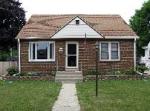 “Do you have any info on how to tell if a reverse mortgage is not right for you?” is a question I recently received from Stan Cohen of www.MaturityMatters.net. He stated that one of the big issues he hears about is that seniors are afraid that a reverse mortgage may not be right for them. He also stated that he has heard seniors are afraid of outliving their money and being forced from their homes. Additionally he expressed the concerns of being hospital/nursing home bound for over a year and negating their contracts.
“Do you have any info on how to tell if a reverse mortgage is not right for you?” is a question I recently received from Stan Cohen of www.MaturityMatters.net. He stated that one of the big issues he hears about is that seniors are afraid that a reverse mortgage may not be right for them. He also stated that he has heard seniors are afraid of outliving their money and being forced from their homes. Additionally he expressed the concerns of being hospital/nursing home bound for over a year and negating their contracts.
Following is my reply to help seniors and their families have a better understanding and overcome their fears of reverse mortgages.
There are a lot of misconceptions about reverse mortgages and I believe this puts the fear into the seniors and their families.
A reverse mortgage is a mortgage just like any mortgage but with special terms for seniors 62 and older. With a reverse mortgage there are no income or credit score qualifications and no monthly mortgage payments. Another difference from a conventional mortgage is the reverse mortgage loan is not due and payable until the home is no longer the primary residence of the borrower or on their 150th birthday.
One can go into the nursing home temporarily as long as the home remains their primary residence and they are returning to the home within a year.
Once a reverse mortgage is in place, even if they use all their funds from the reverse mortgage the borrowers can stay in their home. The advantage is they don’t have mortgage payments to make which takes away the risk of foreclosure from not making a monthly mortgage payment.
Just like a conventional mortgage, borrowers are responsible for keeping insurance on the property, paying property taxes and maintaining the home. As long as they abide by the terms of the loan they are not forced from their home.
Some of my blog posts may help you clarify the facts:
“The Misconceptions of Reverse Mortgages Abound… What Do You Know?”
“Why Are You So Afraid of Reverse Mortgages?“
There isn’t a check list to say when one should or shouldn’t do a reverse mortgage or whether it’s right or not right for them. It’s very personal for everyone.
The first evaluation should be to determine if they qualify, i.e. they are old enough, the property qualifies, and they have enough equity to pay off any current mortgage(s).
Generally we say the reverse mortgage is not right for one who plans on moving in a short period of time. However I have seen where it has been a huge benefit to seniors and their families even when the home is sold in a short period of time after the closing. One needs to be educated on the pros and cons of the reverse mortgage for their situation and then decide if it will meet their needs.
 One should work with a reverse mortgage originator who will take time to meet with the borrower and discuss their needs, goals, and situation and help them evaluate whether the reverse mortgage might benefit them or whether another option may better suit their situation. I’ve provided a checklist of questions to ask an originator in my blog article “Don’t Let Fear Keep You From A Reverse Mortgage… But Know What To Look For In A Lender.” On our Reverse Mortgages SIDAC website I have an updated version of this check list at http://rmsidac.com/WhattoConsiderWhenTalkingtoLenders.php.
One should work with a reverse mortgage originator who will take time to meet with the borrower and discuss their needs, goals, and situation and help them evaluate whether the reverse mortgage might benefit them or whether another option may better suit their situation. I’ve provided a checklist of questions to ask an originator in my blog article “Don’t Let Fear Keep You From A Reverse Mortgage… But Know What To Look For In A Lender.” On our Reverse Mortgages SIDAC website I have an updated version of this check list at http://rmsidac.com/WhattoConsiderWhenTalkingtoLenders.php.
Another article that may help is: “A Reverse Mortgage…Or? Other Options To Consider.”
I recommend you meet with a local originator rather than working with a lender from another state who just mails you an application package. You’ll receive more personalized service and information. We meet with our Minnesota seniors and usually spend two hours with them explaining the details of reverse mortgages and reviewing their situation along with the pros and cons. This is even before we do an application. The application is done in person, generally at their home, where we spend another hour and a half to two hours.
Do you go to a plumber if you are having health problems? No, you go to a doctor. And you don’t go to a generalist if you have cancer or heart disease, you go to the specialist. The same is true for a reverse mortgage, go to a reverse mortgage specialist/expert to get the facts and options for one’s situation then decide what will best fit your situation.
Hope this information helps you with your decision to explore a reverse mortgage to determine if it might be right for you.
© 2011 Beth Paterson, Beth’s Reverse Mortgage Blog, 651-762-9648
This material may be re-posted provided it is re-posted in its entirety without modifications and includes the contact information, copyright information and the following link: http://wp.me/p4EUZQ-p7
Blog posts’ information is current as of date post published, program is subject to change in in the future. Contact us for current information, 651-762-9648.
This site or the information provided is not from, or approved by, HUD, FHA, or any US Government or Agency.




















 Home care and a reverse mortgage can help fulfill a senior’s wish of staying in their home when some extra help is needed. Consider the desires of the senior, what are their wishes? What will make them comfortable and give them peace of mind?
Home care and a reverse mortgage can help fulfill a senior’s wish of staying in their home when some extra help is needed. Consider the desires of the senior, what are their wishes? What will make them comfortable and give them peace of mind?